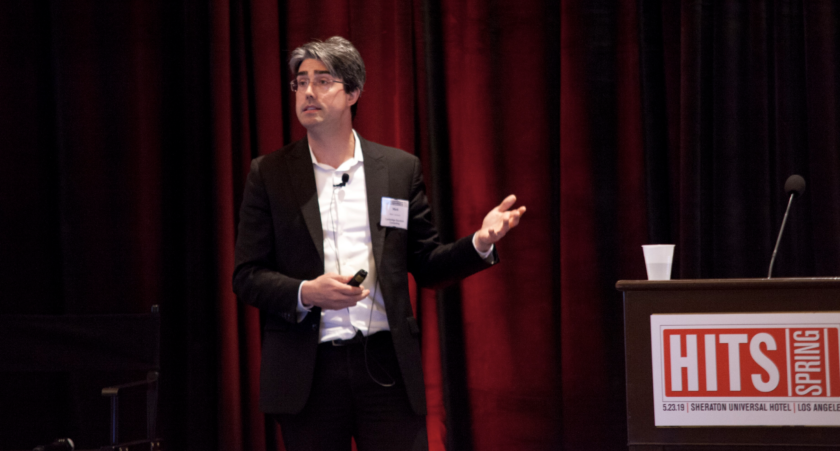M+E Daily

HITS Spring: Experts Talk Quantum Computing, Deep Fakes
Story Highlights
During the May 23 HITS Spring session “Quantum Computing and the Future of Entertainment & Content Security,” Mark Jackson, scientific lead of business development at Cambridge Quantum Computing, said quantum computing presents significant opportunities for innovation in media and entertainment and other sectors. But the massive raw computing power created by it also stands to create a potential major challenge, he noted.
“It’s here,” he said of quantum computing, adding: “I think that’s a fact that a lot of people don’t realize. Quantum computing was thought of about 40 years ago, but “it sounded almost crazy” then. It was only about five years ago, however, that companies realized how we could build quantum computers, he told attendees.
Now there’s billions of dollars being spent by companies including Google, IBM and Microsoft to build these computers, he pointed out, noting there’s more than 80 quantum computing hardware groups in the Western Hemisphere alone.
Quantum computing will be important to the entertainment industry, with most of its relevance expected to be in two areas: Quantum machine learning (ML) and encryption and communication for protecting data, he said.
But quantum ML is “a fundamentally different thing” than standard ML today, he said, noting quantum ML is based on “much more sophisticated” mathematics that should be able to “identify patterns that we never would have been able to find otherwise.” Most of the relevance of quantum ML in the entertainment industry will be in artificial intelligence (AI) involving image classification, he said, predicting that, in five years, quantum ML “will actually have a huge effect” on the technology used for movie special effects.
Quantum computers, meanwhile, present a challenge because they are also “really good at hacking” and can solve formulas used for about 99% of today’s encryptions, he said. Organizations, however, are already developing new formulas that aren’t vulnerable to quantum computing – formulas that can create hackproof communication via Quantum Entanglement in which watermarking plays a key role, he explained.
 In the closing keynote “Is That Real? The Threat & Opportunity of Deep Fakes in Our Content Culture,” Nonny de la Peña, a journalist, filmmaker and CEO and founder of Emblematic Group, a Santa Monica, Calif.-based company that produces augmented, mixed and virtual reality content, discussed the challenges to media and entertainment companies created by fake images that can fool almost anybody.
In the closing keynote “Is That Real? The Threat & Opportunity of Deep Fakes in Our Content Culture,” Nonny de la Peña, a journalist, filmmaker and CEO and founder of Emblematic Group, a Santa Monica, Calif.-based company that produces augmented, mixed and virtual reality content, discussed the challenges to media and entertainment companies created by fake images that can fool almost anybody.
“Trust in American institutions has fallen to troubling lows,” and deep fakes are only making matters worse, she said. That’s problematic because, “without trust, democracy cannot function [and] we have to believe in our institutions,” she noted. It’s important to trust but verify information, she went on to say, also suggesting that everybody “think before you share” and “spread goodwill” on social media.
HITS Spring was presented by Entertainment Partners, with sponsorship by LiveTiles, 5th Kind, Amazon Web Services, Birlasoft, Exactuals, Expert System, MarkLogic, Microsoft Azure, Richey May Technology Solutions, SoftServe, Spark Digital, Avanade, CDSA, Cinelytic, EIDR, MicroStrategy, Signiant, the Trusted Partner Network, human-I-T, and Zaszou IT Consulting.
The event was produced by the Media & Entertainment Services Alliance (MESA) and the Hollywood IT Society (HITS), in association with Women in Technology: Hollywood (WiTH); CDSA; and the Smart Content Council.









